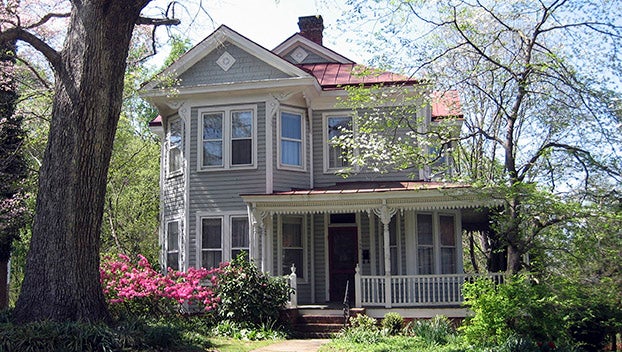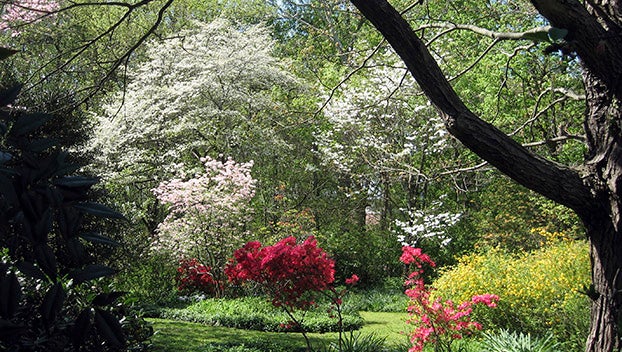From the ground up — The Joys of a Simple Garden
Published 4:41 pm Saturday, October 1, 2022
|
Getting your Trinity Audio player ready...
|
Farmville is blessed with many talented gardeners. Explore the various neighborhoods, and you’ll find English kitchen gardens with tidy paths, carefully clipped borders, and thriving herbs. There are joyful cottage gardens with riotous combinations of colors and textures. There are older gardens that still show the influence of Charles Gillette’s distinctive designs that came to be known as the Virginia style. Think hedges, vine-covered lattices, boxwood, and the creation of garden “rooms.” There is even a community garden that’s thriving.
Nestled around a stately old Victorian is one of the most perfect gardens I’ve ever seen. Why? It’s not showy and doesn’t incorporate famous designers’ concepts, but it meets all of the most important reasons for having a garden. It welcomes visitors and encourages them to explore. In fact, without wandering around, visitors will miss some of the garden’s hidden treasures. This garden offers a calm atmosphere that encourages visitors to slow down and relax; it’s a refuge. Every garden should provide space for quiet contemplation.
And finally, this garden is easy to maintain; years ago, the owner took into consideration the impact of aging on her ability to maintain the garden. It doesn’t require extensive work and certainly doesn’t need for the grass along the borders to be trimmed with manicure scissors. (Yes, that’s a thing in some gardens in England.)
If you’re lucky enough to be invited for a light southern supper on the veranda at Elizabeth Etheridge’s house, you’ll understand what I mean. The veranda is shaded by wisteria vines that provide privacy and late spring blooms. The front garden is simple but inviting with traditional dogwoods and azaleas. Some of those traditional flower beds, however, contain bloodroot, a lovely, low-growing spring ephemeral with interesting foliage and large white flowers that pops up just when most of us are desperate for signs of spring. And about the time that early summer heat and humidity descend on our area, the bloodroot disappears until the following year. Yes, Libby was planting native plants long before they became popular.
While the front garden is orderly and quiet, it’s the back garden, the one you can see from the veranda while eating your devilled eggs, Brunswick stew and strawberry shortcake, that’s simple perfection. Both sides are lined with tall-growing shrubs that provide privacy from neighbors. The back of the property abuts woods and is planted with a variety of spring blooming azaleas, bulbs, dogwoods and other shrubs. There is a small central plot of grass and a semicircular path through the shrubs. It all looks very natural, as if it just happened.
While there aren’t any exotic plants here, there are some old-fashioned ones that lend themselves to benign neglect. My favorite is Kerria japonica or Japanese rose, which forms a hedge along one side of the garden. It’s a deciduous shrub that works well here and provides interest throughout the year. In winter, the gracefully arching stems are green. In spring, the shrub is covered with a bounty of bright yellow, pom-pom-shaped flowers. In fall, the foliage turns bright yellow before dropping. Kerria japonica’s only bad habit is spreading by suckers. In this garden, that’s not a problem, and suckers can always be controlled, if desired. The bright yellow of the Kerria japonica is echoed by the orange blooms on the tall deciduous azaleas on the other side of the garden.
Yes, this garden is simple, but it’s that very simplicity that makes it enchanting. It’s doesn’t radiate the need for serious and potentially stressful maintenance; it just invites visitors to relax and enjoy it. Perfect.











